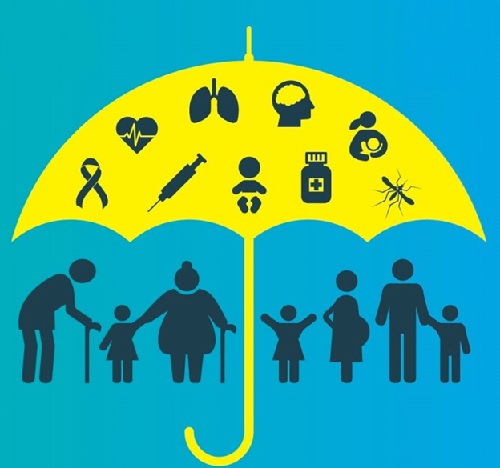
BY STAFF REPORTER
Ethiopia has been implementing Community-Based Health Insurance (CBHI) schemes since the past ten years with the target of benefiting its people from healthcare services by reaching 80 percent of districts and 80 percent of its population by 2020.
As a result, the scheme has yielded encouraging results especially, amongst the rural communities, the pro-poor and low income segments of the population significantly through covering basic health care costs, letting them get treatment freely and lessening their health burden.
Aside from eliminating the financial barrier that the poor may face in times of illness; the scheme has promoted communities’ culture of visiting health facilities and utilizing health services. What is more, by expanding health coverage for the poor, it has improved access to health services even though there are some challenges with regard to the implementation process such as being reluctant to serve beneficiaries at the desired level.
Currently, The Ethiopian Health Insurance Agency (EHIA), scaling up the best experiences it has gained over the years and aiming to promoting health insurance across the country and reaching out larger number of peoples, is undertaking various activities.
Recently, the Agency has announced its plan to implement social health insurance services in the new Ethiopian budget year for government employees, retirees as well as private and nongovernmental institutions.
At a discussion forum the Agency held at Adama Town with pertinent bodies and key stakeholders on the possibility of commencing social health insurance service in the upcoming Ethiopian budget year, Agency’s Director General Frehiwot Abebe, said that social health insurance system has not been launched in the country. However, currently, in collaboration with the Ministry of Health and other stakeholders, a roadmap that guides the scheme is prepared.
Particularly, by setting a goal to provide health insurance services for all citizens in the next 10 years, various works are underway, she added.
“The community, mainly, the public servant has been repeatedly asking us to commence a community health insurance program. Therefore, learning from our past experiences and research findings, drawing the best lesson, and adding the experiences of other countries, we are now ready to implement social health insurance,” she said.
And, the main purpose of the forum, as she indicated, is to have the view of civil servants, teachers’ association, pertinent bodies and other stakeholders about the implementation process of the scheme, enrich the plan document with their constructive inputs and enable them have clear understanding about the matter.
“Community health insurance, which has benefited farmers and pastoralists who are engaged in the informal economies, has produced encouraging results. As a result, it has become an impetus to implement social health insurance,” she said.
Mentioning that community health insurance service is being implemented in more than 800 woredas across the country, the Director General said that currently over 44 million people are benefiting from the scheme. She also urged participants for their unreserved cooperation because their contribution is crucial for the successful realization of the scheme.
Speaking at the forum, Adviser to the Director General, Abdul Jalil Jamal on his part said that implementing social health insurance is an important scheme to access health for all. Particularly following the ever increasing cost for health care services, employing social health insurance is necessary.
“Owing to the high cost of medical supplies and medicines, citizens are not getting the right health services at the required level. To this end, implementing social health insurance is the order of the day.”
Referring a recently conducted study, the Advisor said that aside from the budget allocated by the government, annually individuals spend more than 39 billion Birr from their pocket.
Ethiopia’s Health Insurance Strategy is designed to promote equitable access to sustainable quality health care, increase financial protection, and enhance social inclusion for the majority of Ethiopian families via the health sector. So far, the scheme has benefitted and is benefiting more people.
The Ethiopian Herald June 11/2022





